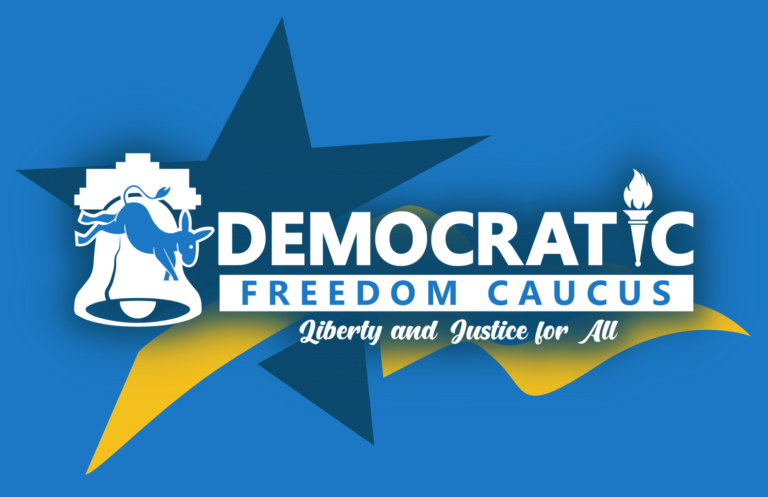DFC Endorses Bill Richardson
The Democratic Freedom Caucus (DFC) endorses Democratic candidate Bill Richardson for president.
The DFC is a caucus in the Democratic Party, and promotes the values the Democratic Party was founded upon: individual liberty, constitutional democracy, and social responsibility.
As Democrats, we see that the Republican Party has strayed far from any respect for individual freedom, or any sense of realistic, practical policies, so we recommend voting in the general election for whichever Democratic candidate wins the primary, but we are convinced that New Mexico Governor Bill Richardson is the candidate who would best represent the Democratic Party in the presidential election.
Richardson’s campaign platform connects with many of the basic principles of the DFC, whose policy views emphasize: promoting the public interest rather than special interests; introducing incentives and customer choice for improving the quality and efficiency of public services; and upholding civil liberties.
Foreign Policy
Regarding Iraq, Richardson advocates redeploying troops so that we can address the real security threats, including the Taliban, terrorists who are still headquartered along the Pakistan-Afghanistan border, and nuclear proliferation.
As Richardson points out, our courageous and dedicated troops “cannot win someone else’s civil war”, and “only when Iraqis know we are leaving will they start seeing us as partners, instead of occupiers”. In fact, “our presence fuels the insurgency”, so only when they see us moving toward a complete withdrawal will that give them “the incentive to kick out al Queda and heal their country”.
Bill Richardson also calls for engaging all of Iraq’s neighbors in stabilization, “in a regional conference modeled on the Dayton conference which ended the war in Bosnia.” “All of Iraq’s neighbors have an interest in preventing Iraq’s civil war from spiraling even further out of control….”
He advocates a new realism in foreign policy, “not unilateralist illusions”. We need to repair our alliances,which “means restoring respect and appreciation for our allies, and the democratic values which unite us.”
Richardson’s policies for healthcare, education, jobs, the economy, energy, agriculture, and education connect in several ways with the DFC’s approach of cutting subsidies to special interests, and recognizing the importance of incentives and choices in the economy, including introducing incentives and choice to public services, to improve quality and cost-efficiency. That approach is illustrated by the following examples of Richardson’s policies:|
Healthcare
Bill Richardson wants all Americans to “have choices of high quality, affordable care by giving every American the choice to keep their current coverage or obtain coverage through an existing, well-established program”. His plan “can be paid for without raising taxes”.
He advocates giving veterans “a choice of physicians wherever they live, rather than have to drive to the nearest VA facility just to get care”. And he would lower prescription drug costs by having the federal government negotiate prescription drug prices through Medicare.
Education
Richardson “will oppose public tax dollars going to private schools, but will increase school choice with charter, magnet, and other public school options, as well as more flexible course options”.
Agriculture
Richardson points out that agriculture “has come to be dominated by a handful of massive corporate conglomerations, and the family farmer, the environment and American consumers suffer because of it.” … He would ensure that the market “functions as it is supposed to function through a new generation of antitrust legislation for the farm sector.”
Fiscal Discipline
Bill Richardson advocates fiscal discipline, to rein in wasteful, inefficient spending, “so that we may return to the budget surpluses we experienced during the Clinton Administration”. As Governor of New Mexico, Richardson consistently demonstrated fiscal responsibility.
Energy
To reduce our dependence on oil imports, Richardson would provide incentives for the electric and industrial sectors to make significant reductions in carbon emissions, and would “raise some revenue from sales of carbon permits”, as well as get out the “green scissors” to “cut back on wrongly-placed tax subsidies”. That “will create more than ten times as much value in the American economy by reducing our oil imports as we spend to make this program happen.”
Civil Liberties
Bill Richardson is a champion of civil rights, freedom, and the rule of law, including equal rights under law. For example, he supports equal rights for domestic partnerships. Richardson is for protecting the right to vote, by ensuring that every individual’s vote is counted, by such means as making the election system more transparent.
As Richardson points out, “America is too great a nation to support such retrograde measures such as torture. We should “restore American greatness by putting an end to these inappropriate (and ineffective) policies and following the Geneva Conventions”.
Immigration
Bill Richardson points out that “attempting to deport 12 million illegal immigrants is not feasible or reasonable.”Instead, “a realistic immigration reform must address the problem from all sides: securing the border, penalizing employers for knowingly hiring illegal workers, offering a tough but reasonable path to legalization, engaging Mexico in the reform process, and improving our current immigration quota system.”
Environment
Richardson would restore the Clean Water Act, revive clean air standards, provide incentives for power plants to use cleaner fuels, and expand corporate reporting requirementsfor disclosure of toxic pollution. He wants the U.S. to be a clean energy nation like he made New Mexico a clean energy state. Richardson would also get back “to the international negotiating table” and support world-wide limits on global warming pollution.
Richardson for president campaign website: https://www.richardsonforpresident.com

